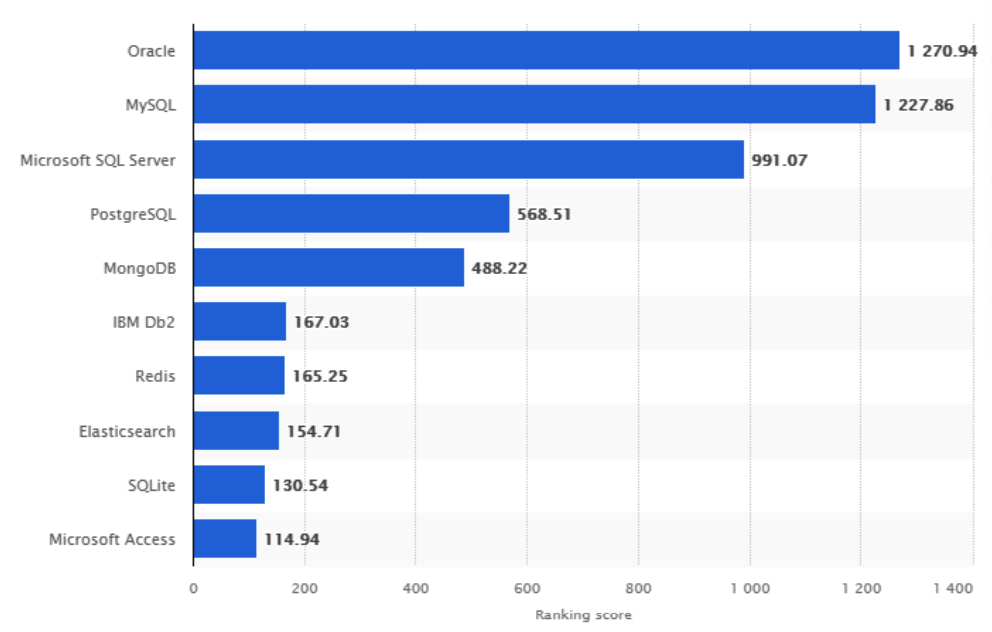Who uses this technology?
General usage
How is MongoDB different from SQL database solutions?
Flexible data structure. It organises data in schemaless documents that can have dynamic structures instead of the restrictive static structures (i.e. tables) used in SQL databases. This ability to quickly adapt to changing data structure requirements supports agile growth strategies, for instance rolling out new features.
Scalability. MongoDB can accommodate growing traffic by sharding, i.e. adding more servers to a NoSQL database. This is also called horizontal scaling which creates more capacity than vertical scaling (increasing an SQL database server’s RAM or CPU).
Performance. NoSQL databases require less processing and thus produce faster query results. That’s because, unlike SQL databases, they don’t need to combine data from multiple tables to resolve a query; everything is already in one document.
These characteristics make MongoDB a good option for applications that need to manage large amounts of unstructured data from multiple servers. This includes big data applications, content management systems, and fast-growing e-commerce platforms.
Popularity
Founded in 2007, MongoDB has a huge community of developers. According to Statista it is the most popular NoSQL database solution in 2021.
 Source: Statista
Source: Statista
Marketplace benefits
CobbleWeb started using MongoDB instead of MySQL as a database solution for its marketplace clients for a number of reasons:
- It works really well with Node.js and Express.
- It scales better than previous platforms built with MySQL.
- Its flexible document schema is useful for storing third-party data with different structures.
- It can handle dynamic queries, thus allowing users to find data using any criteria. This is valuable for marketplaces, where complex database queries are quite common.
Our client FanPass, for instance, used a search engine built with MySQL to filter and return queries for sport and other social events. When their marketplace grew rapidly and a higher number of users started looking for more events with multiple filters the search feature crashed. The solution was to switch to MongoDB which could handle the high number of filtered queries.
We applied the same approach to Care Connect’s healthcare job marketplace, which utilised more than twenty search filters. MongoDB was also the better option to handle the various queries in their analytics dashboard.
We're here to help!
Would you like to know more about the suitability of a particular technology for your marketplace? Get in touch for a free audit and recommendations.